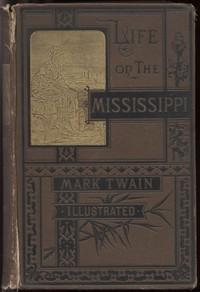Read this ebook for free! No credit card needed, absolutely nothing to pay.
Words: 65489 in 29 pages
This is an ebook sharing website. You can read the uploaded ebooks for free here. No credit cards needed, nothing to pay. If you want to own a digital copy of the ebook, or want to read offline with your favorite ebook-reader, then you can choose to buy and download the ebook.


: Frost's Laws and By-Laws of American Society A condensed but thorough treatise on etiquette and its usages in America containing plain and reliable directions for deportment in every situation in life. by Frost S Annie Sarah Annie - Etiquette United State
Etiquette and Its Uses Introductions Letters of Introduction Salutes and Salutations Calls Conversation Invitations Dinner Company Balls Morning and Evening Parties Visiting Street Etiquette Riding and Driving Travelling Etiquette In Church Etiquette For Places of Amusemfent Servants Hotel Etiquette Wedding Etiquette Etiquette For Baptisms Etiquette For Funerals Etiquette of the Studio Table Etiquette Etiquette With Children Games With Cards Visiting Cards Letter Writing The Lady's Toilet The Gentleman's Toilet Miscellaneous
THE LAWS AND BY-LAWS OF AMERICAN SOCIETY.
ETIQUETTE AND ITS USES.
THERE are a great many people, in other respects perfectly estimable who maintain that the laws of nature are the only laws of binding force among the units which compose society. They do not assert their doctrine in so many words, but practically they avow it, and they are not slow to express their contempt for the "ridiculous etiquette" which is declared by their opponents to be essential to the well being of society. These people are probably a law to themselves in such matters; they obey in their rules of conduct those instincts of propriety and good manners which were implanted in them at their birth, and cultivated probably by their education, and therefore they have small need to study especially how to conduct themselves in their intercourse with society. In such cases, their opposition to a written code of manners is rather an affair of theory than of practice, and it seems rather absurd that they should so emphatically denounce the system which they themselves, by example rather than precept, thoroughly carry out. They would be probably as averse to committing any act of rudeness, or any breach of politeness as the warmest admirer of the primitive life of the Indian would be to living himself in a dirty tent, and eating his food, half cooked, on a forked-stick over a camp fire. For such people this little code of the "Laws and By-Laws of American Society" is not written.
There are others who are equally fierce in their denunciations of the ridiculous etiquette above mentioned, but who have not the same natural excuse for being so. These are the rude, rough natures, whom no amount of social rubbing, or intercourse with the most refined would polish, though the professors of the art of good breeding polished never so wisely. They act in their rules of conduct on a principle wholly selfish, making their own ease and comfort the first, if not indeed the sole aim, regardless entirely of the amount of inconvenience or discomfort they may occasion to others. They are obliged to cry down, for mere consistency's sake, the system which condemns their own course of action, and which gives certain laws for governing the conduct, and certain other laws prohibiting many of the acts of rudeness which they find so agreeable, but which others may reasonably object to as offensive. Such persons, too, will of course freely express their opinion, yet their denunciations will probably produce an exactly opposite effect to the one they intend, their own conduct proving the pernicious influence of their theory. Their abuse will be, not the expression, half in badinage, of minds protesting by anticipation against the abuse of forms and ceremonies; but the ignorant invective of coarse-minded people against a principle that would tame them, and mould them into a more agreeable presence. They exclaim loudly against what they personally dislike, however beneficial it may be either to themselves or others. For them this little book of the "Laws and By-Laws of American Society" is not written.
Besides the two classes already mentioned, there is another exceedingly large class of society, which, far from being boorish by nature, yet from circumstances lacks the cultivation which alone will bring the conduct into such training as will fit it practically for exhibition in society. To the persons comprising this class, it is not only a source of regret, but of absolute pain, to be ignorant of the rules which make society cohere, which mark out the functions and duties of the various members which comprise it, and which guard alike against annoyances from the impertinent, and intrusions by the ill-bred, promoting by organized methods the formation of desirable acquaintanceship and pleasant friendships, which otherwise might never take place. Isolation from society, the want of proper instruction, the ill effect of bad example, the advice of the prejudiced, the association with the low-bred, and a hundred other causes, may conspire to prevent that intimacy with the cardinal rules of good behavior, which decorum and good breeding have dictated for the better guidance of the community. It is for such persons, and for the many others who, though not unacquainted with the principles which should guide them in their conduct, are yet often at fault upon questions of detail, and sometimes commit errors, which are the more excusable that absolute rules, deduced from precedent and established by practice alone could set them right, that this code of Modern Etiquette has been prepared. To them it is offered as supplying a need which it is their misfortune, rather than their fault, to experience, in the hope that it will be found to contain a complete guide for them in the open paths and by-paths too of good society.
Before beginning to lay down the rules and ordinances of Etiquette, it will be well to say a few words upon Etiquette itself.
Etiquette is, in point of fact, nothing more nor less than the law, written and unwritten, which regulates the society of civilized people, distinguishing them from the communities of barbarous tribes, whose lives are hard and their manners still harder. It is to a well disciplined and refined mind the fundamental principle of action in all intercourse with society, and they are interested in maintaining it in its integrity, and bound to heed and obey its simplest as well as more formal precepts. The real law-giver is the general convenience, speaking with authority and the experience of many years; and it will be found that even in those cases, where the meaning of its rules may be somewhat obscure at first sight, there is an underlying reason for the regulation laid down.
Etiquette, like every other human institution, is of course liable to abuse; it may be transformed from a convenient and wholesome means of producing universal comfort into an inconvenient and burdensome restraint upon freedom and ease. It may become the first consideration, instead of more properly the second, as is often the case with the instrumental accompaniment to a song, and then it becomes, as does the accompaniment, an intolerable nuisance. The mere form, over-riding and hiding the spirit which should control and guide it; an entirely artificial state of things, taking the place of the natural, must inevitably produce discomfort and extravagance of behavior. Nature is thus made the slave of Art, instead of Art taking its proper place as the handmaid to Nature.
Etiquette, to be perfect, therefore, must be like a perfectly fitting garment, which, beautifying and adorning the person, must yet never cramp or restrain perfect freedom of movement. Any visible restraint will mar its grace, as a wrinkle will mar the pure outline of the garment.
Most people have heard of the gentleman who was perfect in his knowledge of the laws of etiquette, and who, seeing a man drowning, took off his coat and was about to plunge into the water to rescue him, when he suddenly remembered that he had never been introduced to the struggling victim, and resuming his coat, tranquilly proceeded upon his way.
Not less absurd are a thousand instances where a regard for formal mannerism takes the place of the easy grace that is the mark of true politeness, which being well acquired and habitual, is never obtrusive or offensively prominent. Too rigid an observance of the laws of etiquette makes them an absurdity and a nuisance.
Free books android app tbrJar TBR JAR Read Free books online gutenberg
More posts by @FreeBooks

: Musa Pedestris - Three Centuries of Canting Songs and Slang Rhymes [1536 - 1896] by Farmer John Stephen - Cant Great Britain; Songs English Texts; English language Slang


: The Russian Revolution; The Jugo-Slav Movement by Golder Frank Alfred Harper Samuel N Samuel Northrup Kerner Robert Joseph Petrunkevitch Alexander - Soviet Union History Revolution 1917-1921; Soviet Union Politics and government 1917-1936; Yugoslavs


: The Life of John Clare by Martin Frederick - Poets English 19th century Biography; Clare John 1793-1864; Psychiatric hospital patients Great Britain Biography; Agricultural laborers England Northamptonshire Biography; Northamptonshire (England) Intellectua



